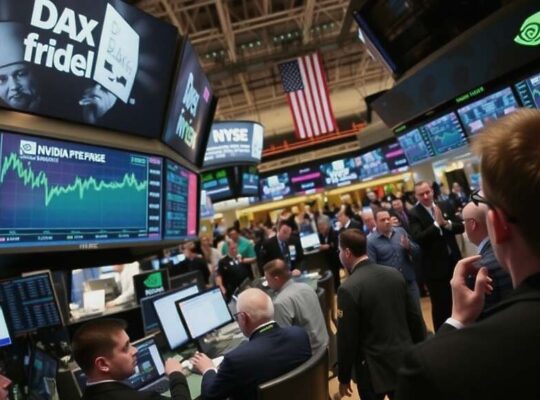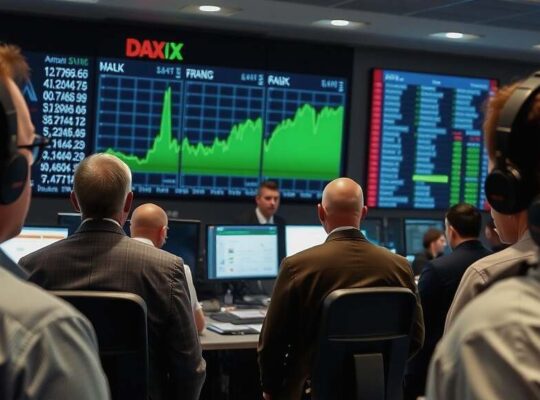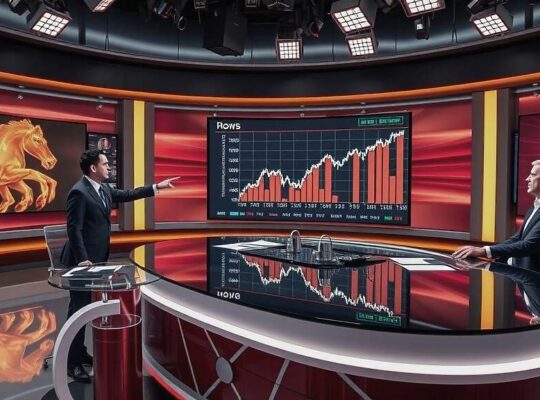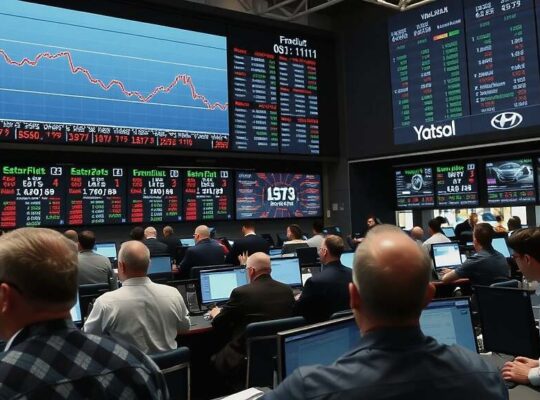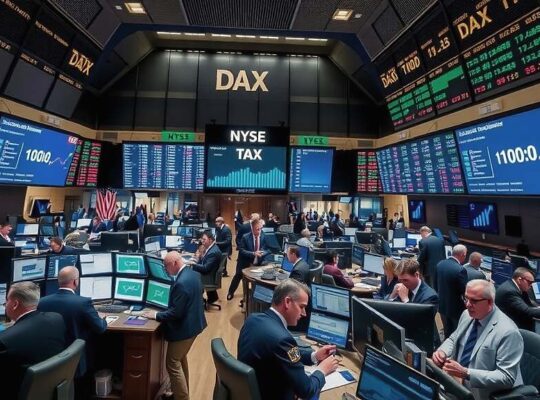European markets experienced a downturn Friday, with the German DAX index closing lower at 23,092 points, a 0.8% decrease from the previous day. The decline followed a volatile session marked by persistent anxieties surrounding the performance of US equities and concerns about the sustainability of recent market gains.
“While the 23,000 level in the DAX has held for now, the index remains significantly weakened from a technical perspective” noted Christine Romar, Head of Europe at CMC Markets. She highlighted the lingering impact of the unexpected reversal in US technology stocks following Nvidia’s earnings release, adding that this shock is likely to keep investors globally on edge for some time.
Romar’s analysis points to a potential shift in market behavior. The historically reliable “Trump trade” where downturns triggered by the former US president’s protectionist policies were followed by rapid recoveries and record highs, appears to be losing its efficacy. “This correction is ‘homemade’ – driven not by external factors like tariffs, but by anxieties regarding inflated valuations and an unsustainable trajectory of growth” she clarified. The absence of a familiar external catalyst compounds the unease.
The outlook for monetary policy also contributes to the market’s fragility. The possibility of a December interest rate cut by the Federal Reserve now seems less probable given recent robust labor market data and a paucity of supportive indicators. “The Fed is likely to adopt a wait-and-see approach, potentially delaying any rate adjustments until January when the data situation allows” Romar stated. The next earnings season, which could justify current valuations through increased profits, remains distant.
Within the German market, Deutsche Börse and Symrise led the positive performers, while Rheinmetall and Siemens Energy lagged at the bottom of the list.
Beyond equities, energy prices registered significant drops. Natural gas futures for December delivery fell to €30 per megawatt-hour, marking a 3% decrease, implying a consumer price of at least 7-9 cents per kilowatt-hour if the trend persists. Brent crude oil also experienced a notable decline, settling at $62.16 per barrel – a 1.9% drop from the previous day’s close.
The euro also weakened, trading at $1.1496, reflecting a cautious sentiment among investors. The broader trend suggests a period of reassessment for European markets, potentially signaling a more challenging environment ahead as investors grapple with questions about the long-term sustainability of recent rallies and scrutinize the impact of shifting macroeconomic conditions.



